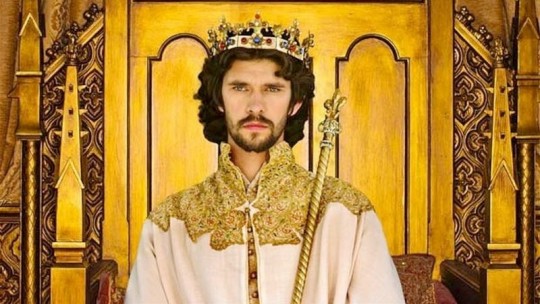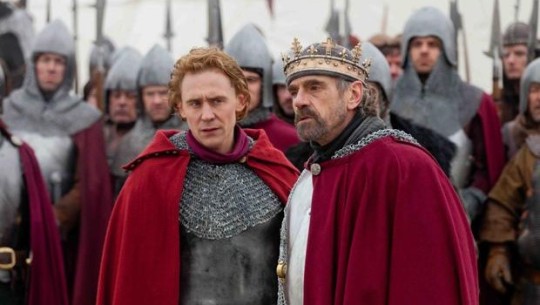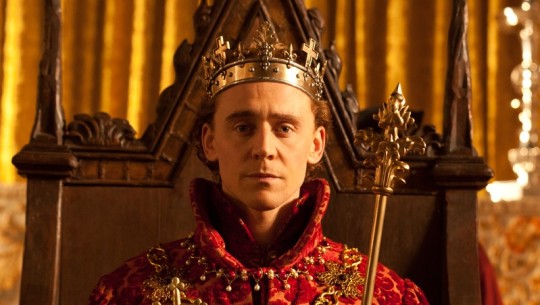#ive been thinking and genuinely i think hes one of the greatest actors. like period.
Text
Jack black needs to be in some sort of hall of Fame. He needs to be immortalized in some sort of way and he deserves nothing less
#ive been thinking and genuinely i think hes one of the greatest actors. like period.#everything hes been in hes completely immersed himself in the role#but all the while he added his own flair to it that defined the character#every character is recognizable as being jack black but is so distinct#like ask any hispanic and well tell you jack black is an honorary latino JUST for nacho libre#and the fact that hes able to perfectly transition into voice acting as EVIDENCED by the new mario movie#like i know everyone loves jack black but genuinely i wish more people saw him for the legend he is#and I know hes likely seen more as a joke because his roles are more comedy based#but that shouldnt diminish from the fact that hes insanely talented and has a Huge range#in fact i think it enhances his talent#the fact that hes such a great comedy asset but also able to pull other feelings out of people#like in kung Fu panda he was VERY emotional#and in the holiday he was genuinely a heart throb like HONESTLY#idk im just having jack black feelings and i needed to hurl them into the void#jack black#mario
9 notes
·
View notes
Text
The Hollow Crown - Series Review

“Let us sit upon the ground and tell sad stories of the death of kings.”
Occasionally, television reminds us that it can be a brilliant medium. It is easy to become cynical, believing that only a show that pretends to be reality or a comedy in which good actors spout terrible dialogue can be aired. Then, just as we despair, along comes something truly genius. The Hollow Crown is truly genius.
It is a series of four of Shakespeare’s history plays. Often performed together, these stories take us from the late years of Richard II’s reign through the reign of Henry V. Although we will never know if Shakespeare intended for these plays to be performed as a series, they work as one. The stories lead on to the next; characters appear in more than one; and, references are often made to earlier plays.
The BBC, once again, didn’t hold back when producing these four shows. Each has a dream cast and a dream director and they were all filmed on location in England. The music is gorgeous; the sets and the costumes are lush; the cinematography is stunning.
Shakespeare is not an author you can watch with one eye while doing the crossword. His language is dense and, because he wrote in the days prior to special effects, much of what is happening is spelled out in some detail. Your reward, however, for paying attention and concentrating on the play at hand is some of the most beautiful language ever written, at least in English. When that language is spoken by some of the greatest living English actors, it becomes magic.
Richard II

The story takes place over the last two years of Richard’s reign and shows us the rise of Harry Bolingbroke who will become Henry IV. The cast is magnificent, especially Patrick Stewart who, I would argue, is among the best of the RSC old guard. And, on a personal note, can I just say that James Purefoy in period costume works so much better than whatever it is that he is currently playing in The Following.
Like so much of Shakespeare, this play is much more complex than one would initially suspect. On the surface, it is about one king losing his throne to another. It is, however, so much more. It is the story of two men who face off against each other. One is a born leader; the other not so much.
Ben Winshaw, who deservedly won a BAFTA for this role, plays King Richard as weak and entitled, convinced by the divine right of kings that he is untouchable. As he makes the decisions he does, even without the benefit of history, we know that they are wrong and that he is making his downfall inevitable.
Rory Kinnear plays Bolingbroke, Henry IV by the end of the play. He plays the role with subtlety and grace, yet underneath it all is a man conflicted and tormented. He never wanted to be king; he just wanted back what was his.
The best example of this disparity is in the language used. Richard never strays from the royal plural; Bolingbroke never uses it once. Now Henry IV, Bolingbroke understands that the divine right of kings has been turned on its ear and his guilt at what he has done, both to his cousin and to the monarchy, is stunningly conveyed in the final scene.
This play is not performed often, but it should be. It is as strong as the three that follow it.
Henry IV, Part One

Many years have passed, and Henry IV is ensconced on the throne. He has aged and now is played by Jeremy Irons who is simply wonderful. “Uneasy lies the head” being a true statement, Henry has spent his reign wrestling with his guilt and with the constant threat of civil war as not everyone is thrilled about who is wearing the crown.
To make matters even more troubling for our king, his son and heir Hal is a right pain in the ass. Instead of hanging out with his father at court and becoming a mighty warrior, Hal chooses to spend his days hanging out in an Eastcheap tavern with Falstaff and other lowlifes. Tom Hiddleston plays Hal and does so with gusto.
Herein lies the tension of this play. Hal has two fathers; the king whom he disrespects and Falstaff whom he disrespects even more. Henry has two sons; Hal who makes him furious and Hotspur (one of the great Shakespearean names) who is not his son, but is the warrior supporting the crown. The problem is that Hotspur is hotheaded and feels that not only does he have a right to the throne as Richard’s true (and declared) heir, he has earned it.
The inevitable battle is truly epic and tough to watch. The producers did not hold back and the flying arrows and sword fights look amazingly real. Extras roll around in the mud and, at the end, all of our heroes look truly filthy and exhausted.
Hotspur and Henry face off and we see Hal become the true heir to the throne in front of our eyes. The language helps, but Hiddleston plays the scene to perfection as everything from the tone of his voice to the way he holds his head changes and becomes more regal.
Simon Russell Beale is the finest Falstaff, ever (he, too, won a well-deserved BAFTA). So many actors play the role going for the obvious laughs. Beale, on the other hand, manages to inject the character with pathos and humanity, and his paternal love for Hal is obvious to all. Admittedly, some of the humor is lost as a result of these choices, but I didn’t miss it. For maybe the first time ever, I understood what Hal saw in such a horror of a man.
This version is filled with wonderful character actors, too numerous to mention. However, I would be remiss if I didn’t send a shout out to Julie Waters who plays Mistress Quickly to perfection. These plays are slight on roles for women, but Waters manages to jump off the screen, going toe-to-toe with both Hiddleston and Beale and, more often than not, winning.
Henry IV, Part Two

This is my least favorite of the four plays, but I did like the choices that Richard Eyre (the director) made in his cuts. He turned what can be a turgid and, let’s face it, dull play into something interesting to watch. He turned it into a play about becoming old and facing death.
King Henry is approaching his death and he frets about the unsuitability of his son to wear the crown when he is gone. Although it takes a while to get there, the final scenes between Henry and Hal are mesmerizing. Irons and Hiddleston are wonderful as the mantle of power is passed, literally as Henry crowns his son. The very brief moment before all this happens, as Hal sits on the throne with his crown, tears running down his face, actually made me well up.
Hal’s other father is aging as well. Falstaff is completely deluded about what Hal’s becoming king will mean for his old friend. Convinced that a life of leisure and sack is just around the corner, Falstaff is biding his time. The scene in the tavern with Doll was tender and lovely. Here is an old man, aware of his mortality, trying to drum up sympathy for his plight. It is all too late, as his past actions are catching up with him.
Never do they catch up more than at the end of the play and Beale plays Falstaff’s final humiliation to perfection. Genuinely shocked by Hal’s change of heart, the emotion races across his face while the newly crowned king dismisses him out of hand. Hiddleston plays this scene extraordinarily well. It is clear that he is doing what he must and what he believes is right, but there are hints that he wishes he could have avoided this scene all together.
Henry V

The producers were up against it filming this play. Undoubtedly the best known of the history plays, it is filled with speeches that are so well known, they are quoted and paraphrased in nearly everything one watches. Additionally, every English actor worth his salt has performed the role at one point or another and Kenneth Branagh filmed a version that would be tough to beat.
It is also, arguably, the most English of all Shakespeare’s plays. By that, I mean it is patriotism in its purest form. The English king, a reformed bad boy, travels to France and, against all odds, triumphs over his adversaries. Throw in the St. Crispin’s Day speech, and I want to stand tall and salute the St. George’s Cross.
The Hollow Crown version, although not the best, worked in terms of the series. It brought to a satisfying close the arc of a weak king, succeeded by a stronger king, succeeded by the most famous king of them all. Hiddleston was better as the younger playboy than he was as a fierce warrior, but when Henry disguises himself to walk amongst his troops before the battle, he was believable -- we had already seen it.
The problem I had with this version is that Hiddleston is on his own, and he doesn’t quite carry it off. He does not have a Jeremy Irons or a Simon Russell Beale with whom to interact and his final scene with Princess Katherine should have at least some degree of sexual tension. This did not.
Having said that, I pity anyone who has to take on the St. Crispin’s Day speech and make it his own. This one was fantastic. Rather than shout it from the ramparts, the director chose to have Hal speak it to “a happy few” and to speak it from the heart. I found myself grinning at the end of it.
The end was also an interesting choice. The director chose to have Falstaff’s boy, who appears sporadically throughout the play, age and turn into John Hurt who had been voicing the role of the Chorus. He breaks the fourth wall in the final moments and it worked. It reminded us that we are watching is, indeed, history and that time passes for us all.
I’m convinced that if Shakespeare is looking down at some of the schlock being performed in his name, he is sighing with relief at these. I’d like to think that, like me, he wishes they hadn’t stopped, but had continued on with Richard III.
ChrisB is a freelance writer who spends more time than she ought in front of a television screen or with a book in her hand.
#The Hollow Crown#William Shakespeare#Richard II#Henry IV Park 1#Henry IV Part 2#Henry V#Ben Winshaw#Jeremy Irons#Tom Hiddleston#Doux Reviews#TV Reviews
19 notes
·
View notes